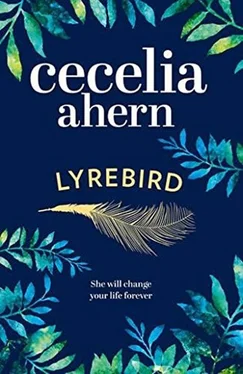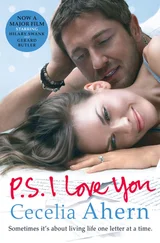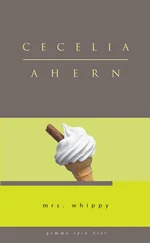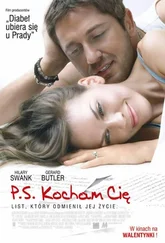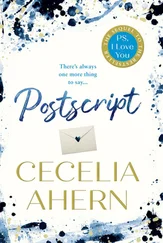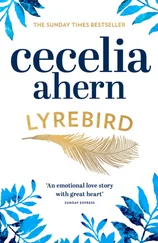Then suddenly the video ends and she sees herself. She is watching herself on the screen, a birdlike woman, sparkling under the lights. The journey brings her to now.
What sound does she make for now? For the end of her journey. She is silent.
After all of Benoît’s work she has forgotten the wings, she was supposed to extend the wings. Panicking she pulls the string and they extend. They fan open and they are so strong they almost lift her off the swing.
The audience gasp. She looks at them, as they examine her.
It’s not the end of her journey. She thinks of Solomon. His awkward throat-clearing, his satisfied sigh, his contented groans, a strum on a guitar. The happiness of the beauty of this afternoon. The magical sound of his mother playing the harp. The waves lapping on the beach across from their home. The seagulls. Just the two of them, alone, they don’t need anyone else or anything else. This is not the end. It is only the beginning.
She thinks of Rachel and her beautiful little baby Brennan and suddenly she hears his cry in the studio. They must have brought him into the studio, Rachel and Susie will be embarrassed he has made the sound, broken the silence but nobody seems to mind, or to look around. Most people are smiling, some are wiping their eyes. She likes the cry of the baby, it’s not a sad sound, she could listen to it all day, and so she does and she starts to swing on the swing, her wings fully extended.
She looks to the side and she sees the people who have brought her here.
Bo is crying.
Solomon is looking up at her proudly, grinning, eyes shining.
Bianca is sobbing.
Even Rachel is struggling. Brennan sleeps in Susie’s arms and she realises it wasn’t him at all, it was herself who made that sound. She should have known.
The cage descends slowly. She hangs on to the swing until the cage gently touches the stage. The crowd are silent as she descends. And then she doesn’t know what to do; her time isn’t up yet. She has five more seconds. It counts down on the screen above her. On one, the cage door suddenly opens, automatically.
She smiles at Benoît’s final touch.

Laura and Alan stand in the centre of the StarrQuest stage. Jack is between them, but Laura reaches across and takes Alan’s hand. His hand is clammy, on his other hand is his loyal Mabel, who’s covering her eyes with her hand in anticipation of the result.
Behind them, their fellow finalists stand in the darkness, their lights extinguished as soon as Jack announced they were eliminated in the public vote. Alice has a scowl on her face. The twelve-year-old gymnast has already had an argument with her parents in the corridor. And now it is down to Alan and Laura as the final votes are in.
The tension builds but Laura feels an overwhelming sense of calm. She has won already. She has achieved what she wanted, and more. She has truly soared. Reached her own personal new heights. She feels free, she embarked on an adventure, she changed her life. Hidden for so long, she’s not hidden any more.
Jack Starr rips open the golden envelope. There’s sweat on his brow and upper lip.
‘And the winner of StarrQuest 2016 is… ALAN AND MABEL!’
She grins. The cage door opens again. And she’s free to go.
Part 4
From about the end of June until middle-July the singing of the male bird undergoes a curious change. During this period his powers of mimicry are rarely exerted and he concentrates on the rendition of his own peculiar notes and call and the long, mellow, warbling nuptial song of his tribe. This song is incomparably the loveliest item of his vast repertoire, and for at least a fortnight in each year he applies himself assiduously to its perfection, singing it over and over from dawn till dark. During this period the male and female birds are never apart. They tread a fixed round through the forests and the underbrush or bracken from mound to mound, and at every mound the male bird stops to display and sing.
Ambrose Pratt, The Lore of the Lyrebird

Laura is sitting on the balcony, in another of Solomon’s T-shirts. Her long legs extend to where her feet are crossed on the top of the balcony, her hands are wrapped around a cup of green tea. Her eyes are closed and lifted to the morning sun. Solomon watches her lazily from the couch where he lies with his guitar, strumming gently, slowly concocting a new song, mumbling words here and there, trying to make things fit together. He could never do this in front of Bo, he always needed to be alone, he felt too self-conscious, but Laura’s company is calming. She listens and occasionally mimics the sound of his strumming. He stops to listen to her, she attempts it a few times until she has perfected the sound. He practises his song, she practises hers. He smiles and shakes his head at the wonderful bizarreness of it.
Laura opens her eyes and looks at the folded newspaper that Solomon placed beside her. She felt him leave it there before sitting on the couch to strum on his guitar.
She sees the headline. SUPERB LYREBIRD.
‘You told me never to read these.’
He continues strumming. ‘You should read this one.’
She sighs and removes her feet from the balcony, needing to plant herself, to ready herself for possible attack, though she knows it must have positive content if Solomon is pushing it on her. It’s a piece about the StarrQuest final by TV critic Emilia Belvedere. Laura braces herself as she reads.
My mother was a midwife but related more with being a keen gardener. She dedicated most of her spare time to fighting a war with unwanted plants between the cracks of her pavement, in the lawn, on her hands and knees muttering curses and threats. Cracks and crevasses in pavements are comfortable, sneaky hiding places for weed seeds, carried in the breeze. Pulling them from their cracks is futile. Dandelions, thistles, sticker weed, pigweed, yarrow – these were my mother’s arch-enemies. I think of this analogy in particular when contemplating the part reality talent shows play in our society.
The judges, the finders, are not the breeze that carry the seeds. They have an element of my mother, in that they notice and they pluck, but are (at first) without her aggression or irritation. Their purpose is not to annihilate – though that is all too often the result of their efforts. They see something rare, something pretty, but in the wrong place, and they uproot them. The finders put them in a fancy vase or jar, a place where they will be shown to advantage for all to see. They convince the weed it is where it belongs. They convince the weed to fight with all of the other weeds who always stood out from each other in their own cracks in their own pavements and never had to fight before. This is both the skill and the downfall of the talent show. The finders cannot be keepers. They uproot, they pull, they replant, and it soon loses its beauty in its new habitat. It cannot grow, it cannot thrive, it has lost its chink where once it sprouted with vitality. It is lost to the great unknown, in an unnatural world that doesn’t understand.
The finders’ purpose is to shine a light, yet often the light is so bright it stuns or blinds them.
From their moment of conception, I have despised television talent shows. It is an hour of discovered talent displayed in the wrong place, nurtured, if at all, in the wrong way. It may not have been concentrated vinegar poured on these rare weeds before our very eyes, but it might as well have been. This year, one talent show changed my mind, the finder of the rarest weed, that has grown and flowered in the most distant of fissures…
Читать дальше
Конец ознакомительного отрывка
Купить книгу
